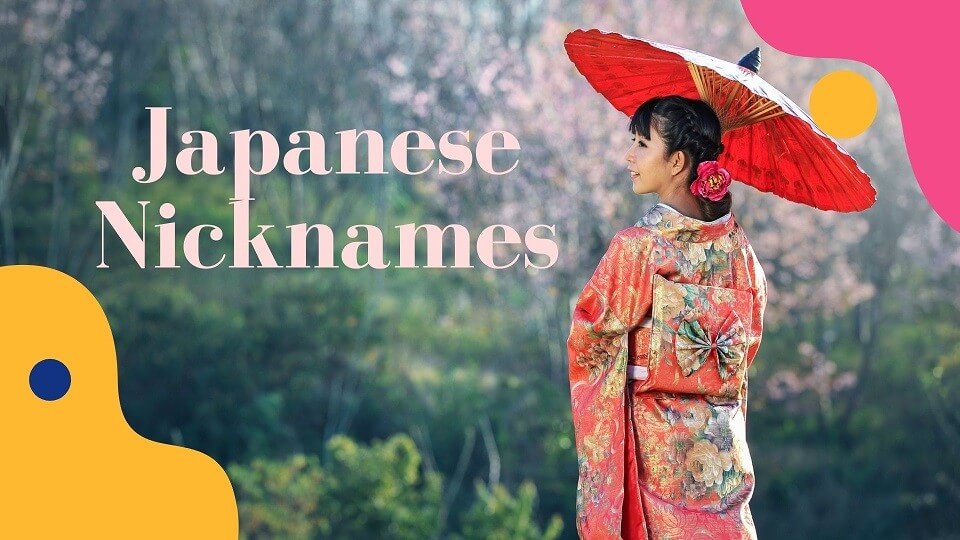Exploring The World Of Funny Japanese Nicknames
In the vibrant tapestry of Japanese culture, humor often finds its expression through the clever use of nicknames. These funny Japanese nicknames not only reflect the individual's personality but also bring a sense of lightheartedness to everyday interactions. Whether it's a playful jab at a friend's quirks or an endearing term of affection, these nicknames reveal the unique charm of the Japanese language and culture.
From the whimsical to the downright hilarious, funny Japanese nicknames serve as a delightful reminder of the playful nature of human relationships. They can encapsulate a person’s character, hobbies, or even physical traits in a light-hearted manner. For example, someone known for their love of food might be affectionately called "Chūka Soba" (Chinese noodles), while a friend who is always late could earn the nickname "Tōkō" (Turtle) for their slow pace. The creativity behind these names reflects the rich linguistic heritage of Japan, making them a fun topic to explore.
In this article, we will delve into the fascinating world of funny Japanese nicknames, examining their origins, meanings, and the cultural significance behind them. From famous personalities to everyday people, we will explore how these nicknames come to life and the laughter they inspire among friends and family. So, get ready to embark on a humorous journey filled with quirky names and delightful stories!
What Are Some Popular Funny Japanese Nicknames?
Funny Japanese nicknames can range from the playful to the downright absurd. Here are a few popular examples:
- Chibi (ちび) - Meaning "small" or "short," this nickname is often given to someone who is petite.
- Ushi (牛) - Meaning "cow," this nickname can be used affectionately for someone who loves to eat.
- Gaki (ガキ) - Meaning "brat," this is usually a playful name for a mischievous child.
- Bakayarō (バカ野郎) - A humorous way to call someone a "fool" or "idiot," often used between friends.
Can You Provide Examples of Funny Japanese Nicknames in Pop Culture?
Japanese pop culture is rich with characters that have funny nicknames. Here are a few:
- Goku (悟空) - The main character from Dragon Ball, who is often referred to as "Kakarot" by his rivals, which sounds funny to many fans.
- Pikachu (ピカチュウ) - The beloved mascot of Pokémon, often humorously called "Pika" for short.
- Usagi Tsukino (うさぎ月野) - Known as "Sailor Moon," her nickname "Usagi" means "rabbit," which adds a funny twist to her heroic persona.
How Do People Choose Funny Japanese Nicknames?
The process of choosing funny Japanese nicknames often involves personal traits, habits, or a humorous incident that stands out. Friends and family typically brainstorm together, with some even deriving inspiration from pop culture, animals, or food. The key is to ensure that the nickname is light-hearted and not offensive, fostering a sense of camaraderie among those involved.
What Impact Do Funny Japanese Nicknames Have on Relationships?
Funny Japanese nicknames can significantly strengthen relationships. They create a sense of familiarity and comfort, allowing individuals to express affection in a playful manner. Moreover, these nicknames often become inside jokes that can be shared among a close-knit group, further solidifying their bonds.
Are There Any Notable Celebrities with Funny Japanese Nicknames?
Yes, many celebrities have adopted funny Japanese nicknames that reflect their personalities or careers. One notable example is the famous Japanese comedian, Ken Shimura, who was affectionately referred to as "Kendama" due to his love for the traditional Japanese toy.
| Name | Nickname | Profession | Reason for Nickname |
|---|---|---|---|
| Ken Shimura | Kendama | Comedian | His love for kendama and playful nature. |
| Rina Sawayama | Rina-chan | Musician | Endearing term used by fans. |
How Do Funny Japanese Nicknames Reflect Cultural Values?
Funny Japanese nicknames often reflect the cultural values of humor, friendship, and respect. They showcase the importance of relationships in Japanese society, where humor is a vital tool for communication. Additionally, these nicknames allow individuals to express their feelings in a light-hearted manner, reinforcing the bonds of friendship and family.
Can Funny Japanese Nicknames Be Used Across Different Age Groups?
Absolutely! Funny Japanese nicknames are versatile and can be used across different age groups. Children often have playful nicknames that reflect their innocence or quirks, while adults might adopt more humorous names based on their personality traits or hobbies. This cross-generational use of nicknames emphasizes the fun and creativity inherent in Japanese culture.
What Are the Rules for Creating Funny Japanese Nicknames?
When creating funny Japanese nicknames, there are a few unwritten rules to keep in mind:
- Ensure the nickname is light-hearted and not offensive.
- Base it on a person's traits, hobbies, or memorable moments.
- Keep it simple and easy to say.
- Make sure the nickname is something the person is comfortable with.
Conclusion: Why Are Funny Japanese Nicknames So Endearing?
Funny Japanese nicknames are much more than just playful labels; they are a reflection of the rich cultural tapestry of Japan. They foster connection, celebrate individuality, and bring laughter into everyday life. As we explore the world of funny Japanese nicknames, we realize that these names are a testament to the joy of human interaction, reminding us all to embrace humor and creativity in our relationships.
Engaging Games For Older Adults: A Fun Way To Stay Active
Embracing Life: The Power Of Christian Blessings Quotes
Unraveling The Mystery: Is Olan Prenatt Married?


